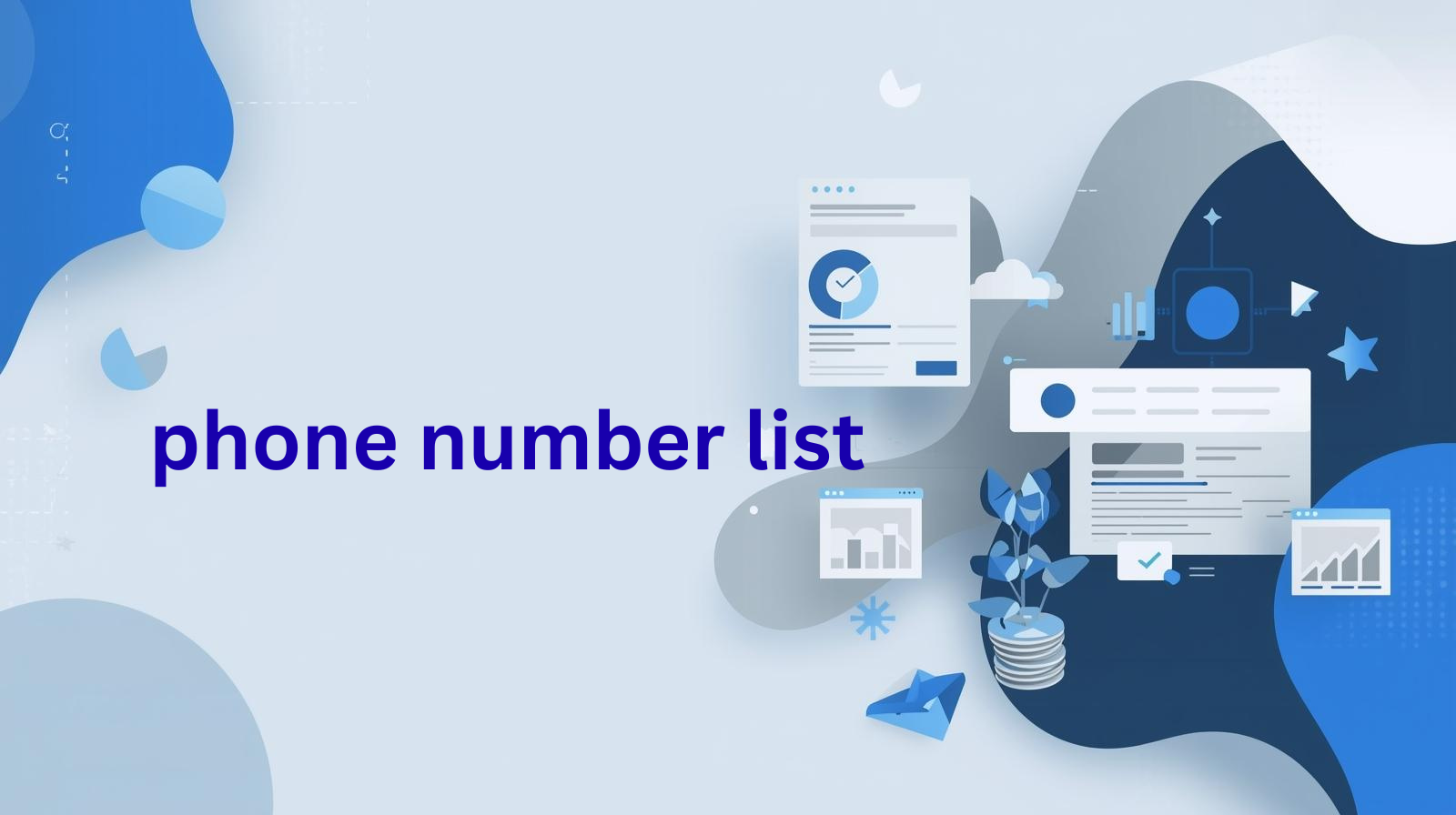The Role of Language in Successful Marketing Campaigns
Lastdatabase21
In marketing, language is more than just a means of communication—it is the foundation of persuasion, emotion, and connection. Every word a brand uses shapes how customers perceive its message, values, and personality. The role of language in successful marketing campaigns is, therefore, critical. It determines whether a campaign merely informs or truly inspires action.
At its core, effective marketing language relies on clarity, emotion, and relatability. The most successful brands know how to speak directly to their phone number list audience in a way that feels natural and authentic. They choose words that resonate with customers’ desires, challenges, and aspirations. This emotional connection transforms ordinary advertising into a meaningful experience. When people feel that a brand “understands” them, they are more likely to trust it—and trust is the first step toward conversion.
One of the most powerful ways language influences marketing success is through personalization. Words like “you” or “your” instantly shift the focus from the company to the consumer.

For example, “You can achieve your goals faster” feels more engaging than “Our product helps customers achieve goals.” This shift in perspective makes the message feel tailored, relevant, and inviting. Personalized language encourages the audience to visualize themselves benefiting from the product or service, increasing the likelihood of action.
Another crucial element is tone and style. The right tone reflects a brand’s identity and determines how audiences emotionally respond. A luxury brand might use sophisticated, elegant language to evoke exclusivity, while a youthful brand might choose energetic, conversational phrasing to create excitement. Consistency in tone across all platforms—social media, advertisements, and emails—builds familiarity and strengthens brand recognition. Inconsistency, on the other hand, can confuse audiences and weaken credibility.
Emotionally charged words also play a vital role. Terms that evoke excitement, curiosity, or urgency can significantly impact consumer behavior. Words like “discover,” “exclusive,” and “limited-time” tap into psychological triggers that prompt immediate action. Marketers often combine emotional appeal with clear benefits, such as “Discover how you can save more today,” to create powerful, action-driven messaging.
At its core, effective marketing language relies on clarity, emotion, and relatability. The most successful brands know how to speak directly to their phone number list audience in a way that feels natural and authentic. They choose words that resonate with customers’ desires, challenges, and aspirations. This emotional connection transforms ordinary advertising into a meaningful experience. When people feel that a brand “understands” them, they are more likely to trust it—and trust is the first step toward conversion.
One of the most powerful ways language influences marketing success is through personalization. Words like “you” or “your” instantly shift the focus from the company to the consumer.

For example, “You can achieve your goals faster” feels more engaging than “Our product helps customers achieve goals.” This shift in perspective makes the message feel tailored, relevant, and inviting. Personalized language encourages the audience to visualize themselves benefiting from the product or service, increasing the likelihood of action.
Another crucial element is tone and style. The right tone reflects a brand’s identity and determines how audiences emotionally respond. A luxury brand might use sophisticated, elegant language to evoke exclusivity, while a youthful brand might choose energetic, conversational phrasing to create excitement. Consistency in tone across all platforms—social media, advertisements, and emails—builds familiarity and strengthens brand recognition. Inconsistency, on the other hand, can confuse audiences and weaken credibility.
Emotionally charged words also play a vital role. Terms that evoke excitement, curiosity, or urgency can significantly impact consumer behavior. Words like “discover,” “exclusive,” and “limited-time” tap into psychological triggers that prompt immediate action. Marketers often combine emotional appeal with clear benefits, such as “Discover how you can save more today,” to create powerful, action-driven messaging.


